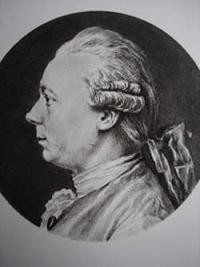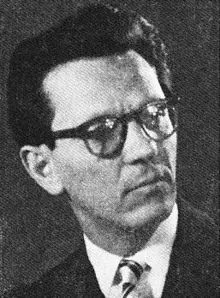
François-André Philidor |
Francois-Andre Philidor

At the court of the French monarch Louis XIII, the wonderful oboist Michel Danican Philidor, who belonged to the French family of Couperin, served. One day he had to come to the palace to participate in the next concert for the monarch, who was looking forward to him. When the musician appeared in the palace, Louis exclaimed: “Finally, Philidor has returned!” From that time on, the palace oboist began to be called Philidor. It was he who became the founder of a unique dynasty of outstanding French musicians.
The most famous representative of this dynasty is Francois André Philidor.
He was born on September 7, 1726 in the small town of Dreux, in central France. He received his musical education at the Imperial School of Versailles, studying under the guidance of Campra. Having brilliantly completed his education, he failed, however, to gain a reputation as a recognized artist and musician. But it was precisely here that another undoubted talent of Philidor manifested itself in full force, which made his name known throughout the world! Since 1745, he traveled through Germany, Holland and England and was universally recognized as the first chess player, world champion. He becomes a professional chess player. In 1749, his book Chess Analysis was published in London. A remarkable study, however strange it may seem, is relevant to this day. Having thus obtained a livelihood for himself, Philidor was in no hurry to advance with his musical talent and only in 1754 announced his return to music with the motet “Lauda Jerusalem”, written for the Versailles Chapel.
It should be mentioned here that back in 1744, before the subsequent chess epic, Philidor, together with Jean Jacques Rousseau, participated in the creation of the heroic ballet “Le Muses galantes”. It was then that the composer first turned to writing music for the theater.
Now Philidor becomes the creator of the French musical and theatrical genre – the comic opera (opera comigue). The first of his many comic operas, Blaise the Shoemaker, was staged in Paris in 1759. Most of the stage works that followed were also performed in Paris. Philidor’s music is very theatrical and sensitively embodies all the turns of the stage action and reveals not only comedic, but also lyrical situations.
Felidor’s works were a huge success. For the first time in Paris, (then it was not accepted), the composer was called to the stage to thunderous applause. This happened after the performance of his opera “The Sorcerer”. For over ten years, since 1764, Philidor’s operas have been popular in Russia as well. They were staged many times both in St. Petersburg and in Moscow.
Gifted with great creative abilities, Philidor managed to combine in his works the technical solidity of German composers with the melodiousness of Italians, without losing the national spirit, thanks to which his compositions made a huge impression. During 26 years he wrote 33 lyric operas; the best of them: “Le jardiniere et son Seigneur”, “Le Marechal ferrant”, “Le Sorcier”, “Ernelinde”, “Tom Jones”, “Themistocle” and “Persee”.
The coming of the Great French Revolution forced Philidor to leave his fatherland and choose England as his refuge. Here the creator of the French comic opera lived out his last, bleak days. Death came in London in 1795.
Viktor Kashirnikov





